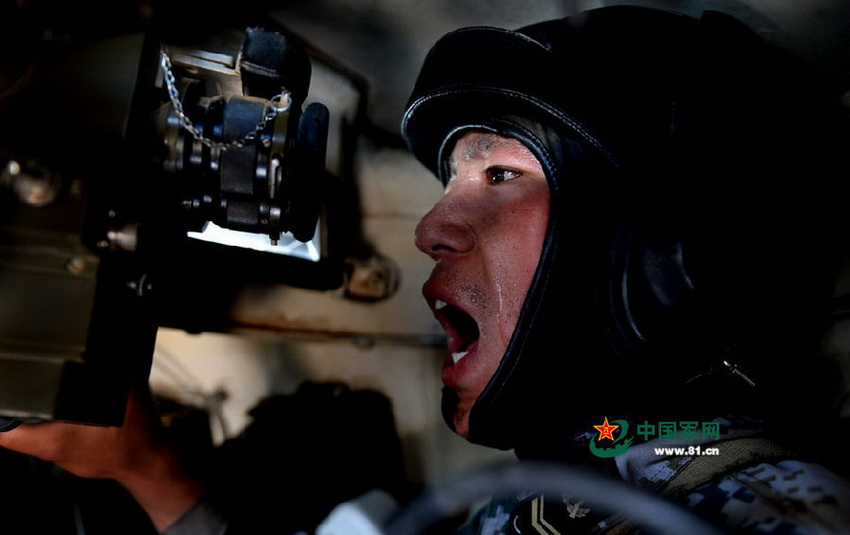 College-student-turned nun becomes famous on Internet
College-student-turned nun becomes famous on Internet
 Japanese airplanes tail Chinese warplane in China's ADIZ
Japanese airplanes tail Chinese warplane in China's ADIZ
 China applies for UNESCO listing of Nanjing documents
China applies for UNESCO listing of Nanjing documents
 Picturesque scenery in Hongcun Village
Picturesque scenery in Hongcun Village
 Japan's PM vows to resume commercial whale hunt
Japan's PM vows to resume commercial whale hunt
 Luoyang aims to become 'Chinese Culture City'
Luoyang aims to become 'Chinese Culture City'
 Century-old jade disc found confirms ancient legend
Century-old jade disc found confirms ancient legend
 A serious mind behind Chinese leader
A serious mind behind Chinese leader
 Panda Cubs to Predict 2014 World Cup Winners
Panda Cubs to Predict 2014 World Cup Winners
 China Southern Airlines flight attendants win titles in service contest
China Southern Airlines flight attendants win titles in service contest
BEIJING, June 17 -- China bought one fifth of the world's industrial robot output in 2013, overtaking Japan as the biggest buyer of such technology, new data showed on Tuesday.
Some 36,860 industrial robots were sold in the Chinese market last year, up 36 percent on an annual basis, according to data released by the China Robot Industry Alliance (CRIA).
Some 9,597 units came from domestic producers, while the rest of the market, around 73 percent, was gripped by foreign robot makers, the CRIA said.
China's industrial robot sector has witnessed booming development over the past decade, with sales revenue growing by around 25 percent each year.
Wang Ruixiang, president of the China Machinery Industry Federation, attributed the rapid increase to the country's diverse manufacturing sector creating huge demand.
Industrial robots have been widely applied in 25 major sectors in China, including food, chemicals, electronics and automobiles.
At the end of 2013, China's Ministry of Industry and Information Technology unveiled a guideline to advance the sector.
Wang considers the robot sector a main gauge of a country's progress in innovation and its development of the high-end equipment industry, and one which is pivotal to China's resolution to restructure its manufacturing.
His words were echoed by Song Xiaogang, president of the CRIA, who said the application of industrial robots will offset rising labor costs and lack of skilled workers, one of the major problems plaguing China.
The country is managing an industrial restructuring as part of its overall economic reform, shifting from thin-profit labor-intensive industries to high-tech emerging sectors with high added value.
However, challenges remain for the country's robot drive, as Song cited the need to enhance domestic producers' technology, nurture enterprises with global competitiveness and improve talent reserves.
He also called for orderly development of the sector amid the rapid advance in a bid to avoid overcapacity and cut-throat competition.
 Super daddies in 2014 World Cup
Super daddies in 2014 World Cup Rebuilding the silk road
Rebuilding the silk road College girls take stylish photos to help enrollment
College girls take stylish photos to help enrollment Top 10 Chinese products scoring World Cup goal
Top 10 Chinese products scoring World Cup goal PLA units hone their tank combat skills
PLA units hone their tank combat skills Attendants shine at Xinjiang-Lanzhou high-speed rail
Attendants shine at Xinjiang-Lanzhou high-speed rail Jiuzhai Valley - fairyland of the world
Jiuzhai Valley - fairyland of the world Can't take eyes off national teams in World Cup
Can't take eyes off national teams in World Cup Beijing strips off to celebrate summer
Beijing strips off to celebrate summer
 Top 20 hottest women in the world in 2014
Top 20 hottest women in the world in 2014  China's top 10 representative architectures
China's top 10 representative architectures Cute animals' leisure summer in zoo
Cute animals' leisure summer in zoo Exhibition of the Buddha held in Tibet
Exhibition of the Buddha held in Tibet Grandpa Kang takes Gaokao for 14th time
Grandpa Kang takes Gaokao for 14th time Incredible animal migration in Xinjiang
Incredible animal migration in Xinjiang Day|Week|Month